Asia. Uneasy Scenarios.
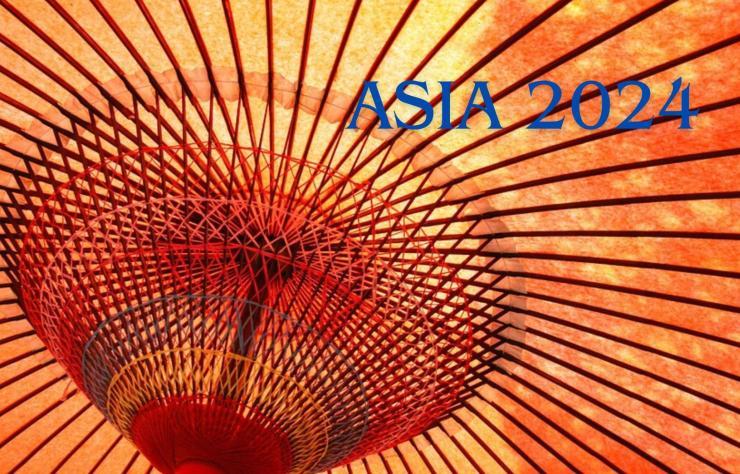
The new year comes not only with a wide series of events, starting with important elections in several countries, but it also opens onto a restless scenario with open conflicts and tensions that could further increase the instability of crucial areas of the continent from the South China Sea to the East China Sea, as well as in areas contested by Pakistan, India, and the People’s Republic of China.
In China, the post-Covid-19 pandemic seems to propose new difficulties rather than a recovery that would serve to ward off suspicions and criticisms at home and abroad regarding the authorities’ attitude in combating the virus which has been accompanied by the accentuated authoritarianism of the almost total power of President Xi Jinping. However, this does not prevent there being difficulties in managing power, tensions between the various currents and clans within the party, as evidenced by the dismissal of several ministers in 2023, and the de facto end of the reformist movement headed by former prime minister Li Keqiang who died on October 27. The planning today does not seem to coincide with the data and prospects of the current five-year plan and the objective of global economic primacy indicated to the Chinese by Xi which could, at the very least, recede, while the already eroded confidence of diplomacy and investors awaits Beijing to test its maturity in managing the Ukrainian crisis and the growing tensions in the Far East of which it is a co-protagonist.
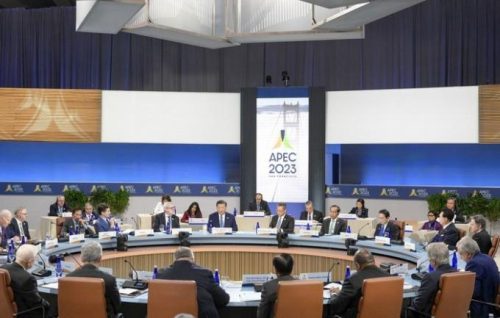
Chinese President Xi Jinping delivers a speech at the 30th Asia-Pacific Economic Cooperation (APEC) Economic Leaders’ Meeting in San Francisco, the United States, Nov. 17, 2023. (Xinhua/Li Xueren)
In Hong Kong, the ongoing economic and financial decline in the Special Autonomous Region of China will be confronted with political choices aimed at limiting even more freedoms and rights. The expected approval of a new security law that definitively closes any space for criticism and opposition will certainly not restore impetus to a society impoverished by the substantial emigration of young people, intellectuals and professionals; infiltrated by denunciation, intimidated by continuous arrests and trials that affect anyone who has participated in any way in the anti-government demonstrations of recent years based on liberticidal measures imposed since 30 June 2020 inspired by the National Security Law of the People’s Republic of China. The production and financial system, which is increasingly subjected to the needs of the People’s Republic of China and its rules, sees the withdrawal of foreign companies and investments without signs of a countertrend for 2024.
Taiwan. Taiwan will see new parliamentary and presidential elections on January 13th. A decisive round in a period of growing tensions with the threat increased by repercussions. Despite not being the favourite for the parliamentary vote, even if probably with the support of the new Taiwan People’s Party, it is even more difficult for the Kuomintang to try to have its own presidential candidate. In favour of the island’s integration with mainland China and winner of the local elections in November, the party seeks a statement that eases tension with Beijing and the risk of military initiatives. The Democratic Progressive Party of outgoing president Tsai Ing-wen, although disheartened by voters regarding the management of the pandemic and the increase in the cost of living, on the other hand, can capitalize on the support of large sectors of the economy and the population who fear the realization of the idea of ‘one country two systems’ which has dramatically revealed its failure in Hong Kong.

Lahore. Minar-e-Pakistan is a national monument marking Pakistan’s independence movement. CC BY-SA 4.0/ Holosoft
This year will also see elections in the major Islamic countries of Asia: to renew their respective parliaments on January 13th in Bangladesh and on the 28th in Pakistan. These events are expected, in the first place, to confirm the leadership of Sheikh Hasina Wazed and his pragmatic choices even if not free from criticism for the harshness with which he contrasts political opposition and radical Islam; and in the second to perhaps allow greater stability after months of political uncertainty and social tensions in a dramatic economic situation.
Indonesia‘s elections will be presidential and parliamentary on February 24th. A three-way race for the highest state office which, according to analysts, could divide the country with the largest economy in South-East Asia looking for a role that has so far not been achieved. Another element of interest but also of concern is the participation as a vice-presidential candidate in the team of the former general and current Defence Minister Prabowo Subianto, a conservative candidate for the position of head of state, of Gibran Rakabuming Raka, son of the president in office, Joko Widodo, who defeated Subianto in the last elections. Beyond the evident contradictory nature of the candidacies, the fear is that this could consolidate a new dynasty of leaders in the turbulent Indonesian politics, in apparent contrast with the democratic and progressive demands promoted by Widodo so far.
The result of the Indonesian vote will be even more important, due to the passing of the rotating presidency of ASEAN (Association of South-East Asian Nations) from Indonesia to Laos last September. A ‘weak’ presidency that the new Indonesian leaders will be able to try to address, strengthened by the demographic and economic weight of their country but also by the complete democracy of the archipelago where there is no shortage of limits and contradictions.
Laos, in fact, with Cambodia and Myanmar, is part of a group under pressure inside and outside the Association regarding respect for fundamental rights and individual and collective freedoms, as well as for the low level of development and well-being.
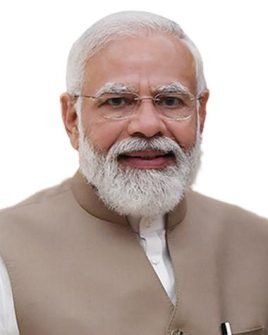
Narendra Modi, Prime Minister of the Republic of India. (Photo: Prime Minister’s Office)
Finally, even India, ‘the largest democracy in the world’, presents itself on the electoral front in 2024 with a call to the polls of great importance and complexity which in several rounds between April and May will allow almost a billion voters to renew the lower house of the central Parliament but also the local assemblies of all levels. Once again competing for control of the 543 seats in the Lok Sabha will be the coalition led by the nationalist Bharatiya Janata party and the one led by the Indian National Congress party which in the outgoing chamber had obtained 303 and 52 seats, respectively. The position of the BJP led by Narendra Modi is almost unassailable, but the battle will clarify whether the Congress will be able to overcome its now long leadership crisis, which not even the central role of the Gandhi family has so far been able to heal.
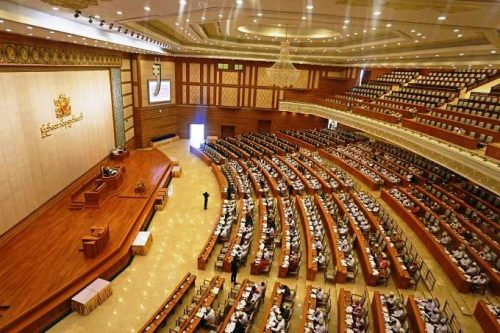
Members of Myanmar Parliament attend the Lower House session in capital Naypyidaw, Myanmar. CC BY-SA 3.0/ Htoo Tay Zar
In Myanmar, under an emergency law that had been postponed several times and which has postponed new elections now scheduled for 2025, there is an increasingly full-blown civil war. In the face of international inattention, the regime continues to arm itself to fight against its own population, to keep in detention or under house arrest a large part of the democratic leadership that had re-imposed itself with the November 2020 vote, defeated by the regime after the coup of February 1, 2021. Those who saved themselves from repression and who gave life to the National Unity Government (NUG) which operates clandestinely, continue to seek international legitimation and support while increasingly directing not only the Burmese dissidents, who in turn are arming themselves and organizing themselves into popular self-defence groups, but also ethnic militias. The current international situation and the still present interests of many countries in Burmese resources play into the junta’s game, while the situation for the Nobel Peace Prize winner, Aung San Suu Kyi, who has been imprisoned again for months and in precarious health, becomes difficult also on the level of personal safety.
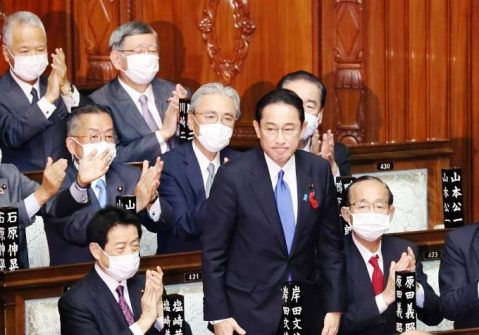
Japanese Prime Minister, Fumio Kishida. CC BY 4.0/Prime Minister’s Office
Japan. Facilitated at the end of 2023 by an economic recovery and a weak yen which made products and brands more saleable, the year 2024 will be lived in a Japan aiming for recovery from the Covid emergency with hopes of a greater strategic role for Tokyo which, led by Prime Minister Fumio Kishida, also works on the renewed interest abroad in the country (as evidenced by an unstoppable tourist flow) and a more proactive role of the government required by its alliances and the protection of its interests at a regional and global level. Internally, Kishida has two lines: continue the expansionary policy of his predecessor Shinzo Abe (Abenomics) to relaunch production, exports, and consumption; address more efficiently the problems associated with the decline in births, the accelerated aging of the population, adequate welfare, and guarantee adequate employment opportunities for women and young people. (Open Photo: Pixabay)
Stefano Vecchia
Asian Analyst



